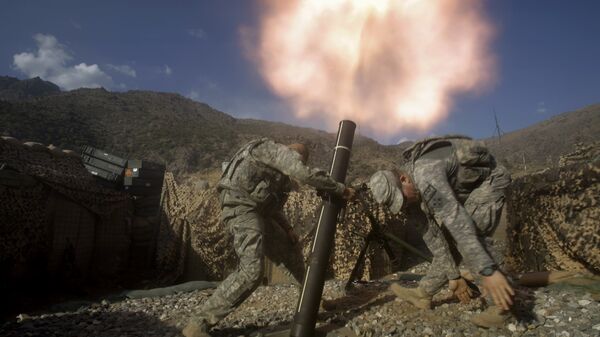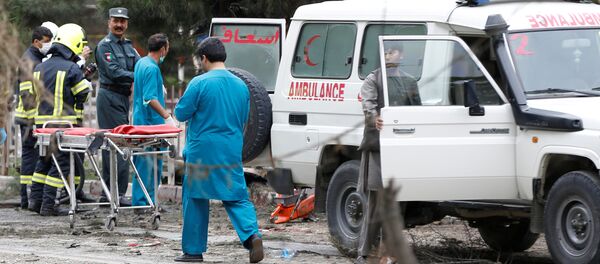Afghan generals have voiced concern over rumors of US forces' withdrawal from the country, fearing that this would give the Taliban radical movement the upper hand and completely disinterest them in engaging in negotiations, which they were reluctant to do in the first place. Even worse, the US withdrawal might lead to the total collapse of Afghan National Security and Defense Force under the strikes of the Taliban insurgency, the military believes.
"I believe the Taliban will see this as a reason to stall, and therefore it disincentives the Taliban to actually talk to the Afghan government, which it has refused to do," says Bill Roggio, an Afghanistan analyst with the Washington-based Foundation for Defense of Democracies.
"A complete withdrawal of US forces would very likely cause the Taliban to make gains in key areas throughout Afghanistan," he added. "This likely would cause the general collapse of the (Afghan National Security and Defense Force) as a cohesive fighting force and lead to the return of the warlords."
US President Trump has long pushed to pull the troops out of Afghanistan. During his presidential campaign, Trump pledged to reduce US's involvement in conflicts abroad. Curiously, in 2017, Trump actually increased US forces in Afghanistan by 3,000 troops.
The announcement to withdraw troops from Afghanistan came mere hours after the order to withdraw US forces from Syria, apparently catching US peace envoy Zalmay Khalilzad completely by surprise.
"There was little doubt that Ambassador Khalilzad was always working with limited time and a zeal of desperation to achieve something before the president pulled the plug," says Daniel Markey, senior research professor at Johns Hopkins University's School of Advanced International Studies.
Speaking in an interview for Afghan TV hours before withdrawal plans were announced, Khalilzad noted Trump had campaigned for president on a promise to end the Afghan war, which has already cost Americans nearly $1 trillion. More than 2,400 American soldiers have also died in Afghanistan since the 2001 US-led invasion.
Judging by disclosures of Afghanistan military officials, the military forces are in disarray. The officials, who spoke to AP, said Afghan government troops are undertrained, poorly equipped, while morale is already dangerously low. The army is riddled with failing equipment, poor reinforcements movement and even food shortage.
US troops invaded Afghanistan in November 2001 in response to the September 11 attacks. Over 16,000 soldiers from 39 NATO countries are currently serving in Afghanistan as part of the mission, with the majority of the contingent being the US soldiers.
* Daesh and the Taliban are terrorist groups, banned in Russia




